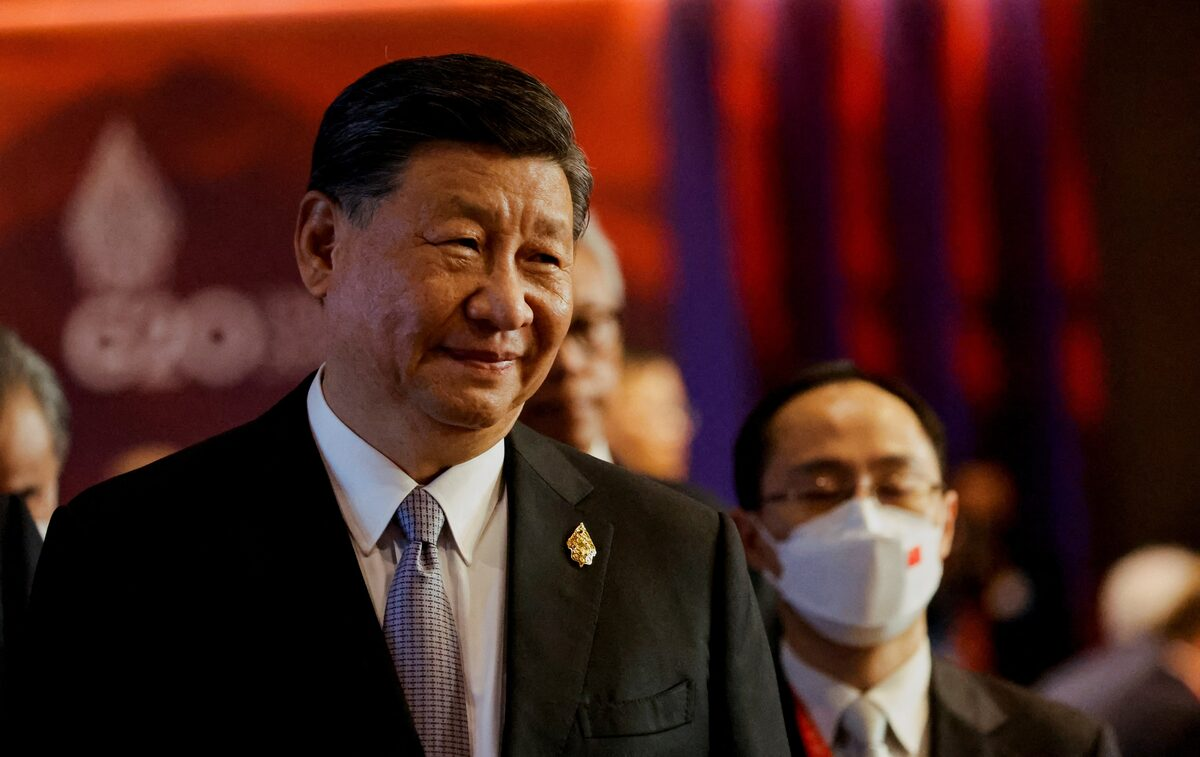The Chinese president made the announcement at the Climate Leaders' Summit hosted by the UN Secretary-General on 24/9.
This message marks the first time the world's largest emitter has pledged to cut emissions, rather than just limit their growth.
Speaking online from Beijing, Xi said they plan to increase wind and solar power capacity sixfold over the next decade compared to 2020 levels, aiming to increase the proportion of energy from non-fossil fuels.
 |
Chinese President Xi Jinping at the G20 Leaders' Summit, Bali, Indonesia, 16/11/2022. Photo: Reuters |
Chinese President Xi Jinping at the G20 Leaders' Summit, Bali, Indonesia, 16/11/2022. Photo: Reuters
The Chinese leader also called on developed countries to take stronger action on climate. Although not naming any specific country, Reuters said Xi alluded to the US moving away from the goals of the Paris Agreement on climate change.
"The transition to a green and low-carbon economy is the trend of the times. Although some countries are going against this trend, the international community should go in the right direction, maintain firm belief, act resolutely, and make continuous efforts," Xi said.
A day earlier, former US President Donald Trump gave a 56-minute speech at the UN General Assembly criticizing climate change as a "hoax," calling scientists "stupid." Trump also criticized China and EU member states for adopting clean energy technology.
Earlier that year, Trump withdrew the US from the Paris Climate Agreement, an international treaty encouraging nations to plan responses to prevent global temperatures from rising more than 1.5 degrees Celsius. The US is the world's largest historical emitter of greenhouse gases. Annually, they are currently the second largest emitter, after China.
China's emissions reduction commitment is lower than observers expected. They hoped China would seize the opportunity presented by the US withdrawal and announce a target of at least a 30% reduction in emissions. This more ambitious reduction would help keep them on track to achieve net-zero emissions by 2060.
Li Shuo, senior global policy advisor at Greenpeace East Asia, said China's announcement was unimpressive given the country's rapid development of renewable energy and electric vehicles.
"Beijing's commitment represents a cautious move, continuing a long-standing political tradition of prioritizing stable and predictable decision-making," Li said. However, he noted that Beijing's dominance in green technology and Washington's withdrawal could push China toward a more proactive role internationally.
Bao Bao (Reuters)












